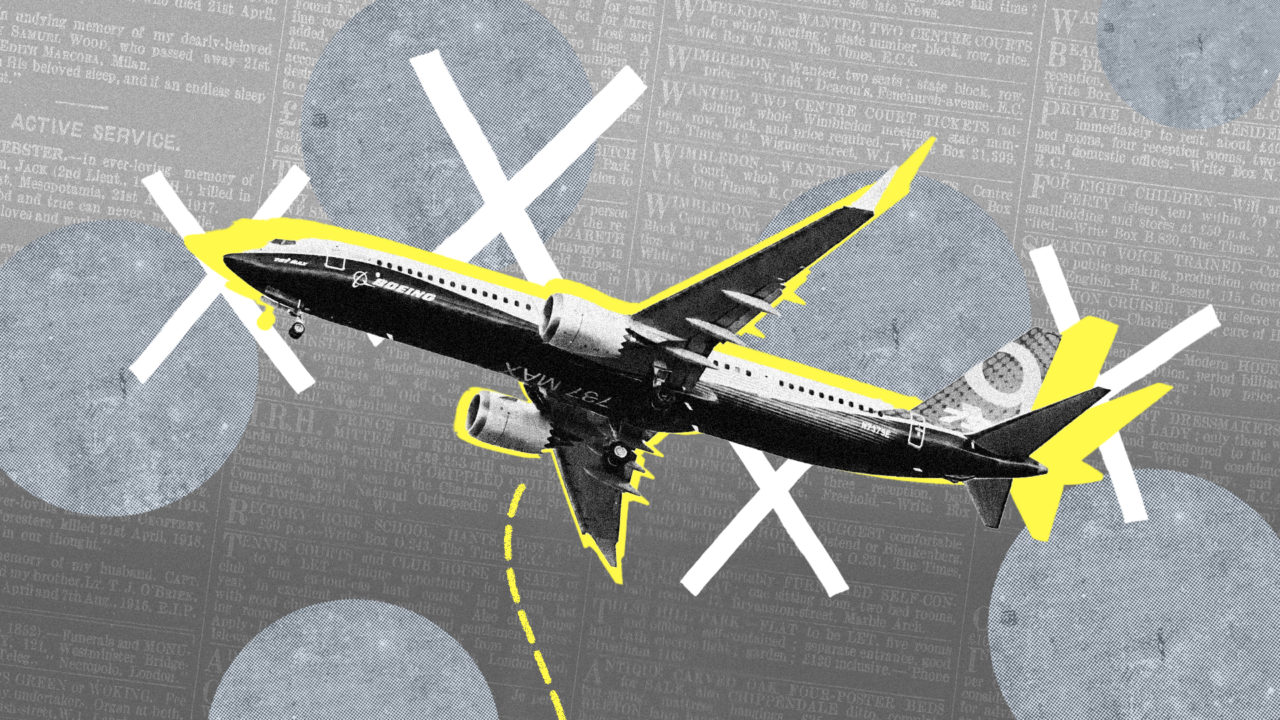Despite a slew of controversies, dangerous in-flight incidents, and two deadly plane crashes caused by faulty software, Boeing’s chokehold on the aviation industry is unlikely be relinquished.
In January of this year, a Boeing plane door blew off during flight and landed in a high school teachers’ garden in Oregon, USA.
Although no one on board (or the ground) was hurt, the incident terrified passengers and concerned frequent flyers, ultimately calling into question the quality and safety of Boeing fleets.
The incident was attributed to loose door-plug parts which are supposed to, well, keep the doors attached to the plane during flight.
The Federal Aviation Administration (FAA) swiftly ordered all Boeing 737 Max 9 aircraft to halt operation, only being allowed to remain in service once ‘thorough inspection and maintenances’ processes were complete.
In the days after the incident, Alaska Airlines and United Airlines conducted inspections on their 737 Max 9 planes and both reported finding loose door-plug parts on their grounded aircraft.
Though there are thoroughly-checked Max planes taking to the sky today, Boeing has been prohibited from accelerating production of this version of its planes, at least for the time being.
Customers are naturally freaking out, with some now checking which aircraft model they’ll be flying with before booking. The public now has their eyes firmly on Boeing, whose officials are pointing fingers at their own workers for these issues.
But several whistleblowers – all current or former Boeing employees – have blamed the company for creating a culture where raising concerns about safety and quality was discouraged, if not impossible.
Anyone getting the same vibes as that Spider-Man meme?

Only joking, because honestly, this is serious. Like, the difference between a fatal ride or an uneventful plane journey serious.
In recent months, Ed Clark, the Boeing executive who oversaw the 737 Max program, left the company. Boeing also created a new role of senior vice president of quality, which honestly, feels like a bit of an afterthought.
The FAA then conducted a six-week audit of Boeing. It uncovered multiple instances where the company failed to comply with manufacturing quality control requirements’ including ‘manufacturing process control, parts handling and storage, and product control.’
This is bad news, but it’s not exactly new news to anyone who’s been paying attention. Numerous ex-Boeing employees have blown the whistle on the company’s shifty practices across the last decades.





















